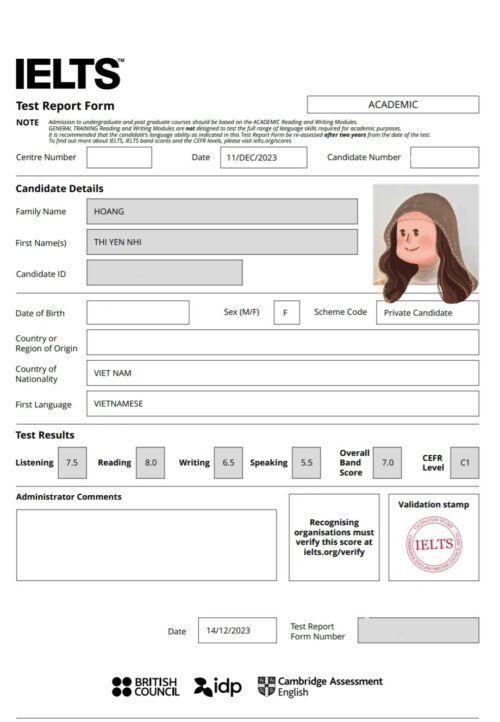Search blog
How to distinguish Who Whom Whose in English
Who, Whom, Whose are three relative pronouns commonly used in the topic of relative clauses—a concept widely applied in exams and everyday communication. So what is the difference between Who Whom and Whose? Below is the most accurate way to distinguish Who Whom Whose. Refer to this guide to effectively prepare for your studies at home!

I. What is Who in English?
Who (/huː/) is used in relative clauses to replace a noun referring to a person or object. Who functions as the subject in a sentence. For example:
-
The man who lives next door is a software engineer for a foreign company.
-
The boy who broke my glass will have to pay for it.
II. What is Whom in English?
Unlike the pronoun Who, Whom (/huːm/) is used as an object and is followed by a complete clause. Note that in some specific cases, Whom can be replaced with the pronoun That.For example:
-
The professor, whom I admire very much, is giving a lecture today.
-
The man whom I met yesterday is a famous artist.
III. What is Whose in English?
Whose (/huːz/) is used to indicate possession or ownership of a person or an object in a sentence (usually followed by a noun). Note that when using Whose in a relative clause, no articles should follow it.
For example:
-
The car whose engine is broken is in the garage.
-
The motorbike whose cover is blue is mine.
IV. Distinguishing Who Whom Whose in English
Once you have a clear understanding of the concepts and usages, let’s take a look at these tables below for exploring the differences between Who vs Whom vs Whose in English!
1. Similarities about use of Who Whom Whose
-
Who Whom Whose are all relative pronouns used to connect two clauses together, forming a complex sentence.
Here are the Who Whom Whose examples:
-
The man who is standing in the corner there is my boyfriend.
-
I wonder whom you will invite to your wedding.
-
The girl whose cat ran away is very sad.
2. Differences between Whose and Who
|
Who |
Whose |
|
|
Usage |
Who serves as the subject, replacing a noun that refers to a person in the clause. After Who, there is always a verb. |
Whose is used to indicate possession or ownership of a person or object in the sentence; a noun follows Whose. |
|
Structure |
… noun (referring to a person) + Who + V + O |
… noun + Whose + N + V/S + V + O |
|
Example |
|
|
3. Differences between Who and Whom
|
Who |
Whom |
|
|
Usage |
Who serves as the subject, replacing a noun that refers to a person in the clause. After Who, there is always a verb. |
Whom serves as the object in the relative clause and is often used in formal writing. It is typically preceded by a preposition, and a complete clause follows Whom. |
|
Structure |
… noun (referring to a person) + Who + V + O |
… N (referring to a person) + (preposition) Whom + S + V |
|
Example |
|
|
V. How to use Who Whom Whose in IELTS and TOEIC exams
Whom is often used more in writing and carries a more formal meaning. Therefore, in IELTS Writing and TOEIC Writing, you should use Whom instead of Who.
For example:
-
Students whom they come from China make up a significantly larger proportion compared to those from other nations.
-
Students whom they come from India are followed by students from the United States and Malaysia, each constituting a notable percentage.
In IELTS Speaking and TOEIC Speaking, you can use Who Whom Whose. Additionally, you can flexibly use That to replace Who or Whom to avoid monotonous use of the same relative pronoun.
For example:
-
Yes, there's a small cafe whose owner is a really friendly guy. We love going there to chat and relax.
-
My English teacher, Mrs. Smith, is the one who encouraged me to study abroad.
VI. Who Whom Whose exercises with answers
Practice the exercises below to learn when to use Who Whom and Whose correctly!
Fill in the blanks: Who or Whose or Whom
-
This is the girl ………… is Linda’s best friend. (Who/ Whose/ Whom)
-
The house ………… windows are pink is mine. (Who/ Whose/ Whom)
-
Do you know the man …………name is Alexander? (Who/ Whose/ Whom)
-
The boy…………I like is your older brother. (Who/ Whose/ Whom)
-
…………has been to Krasnoyarsk? (Who/ Whose/ Whom)
-
The woman ………… mother died in the fire is now a campaigner for peace. (Who/ Whose/ Whom)
-
Ann married Stephen ………… is a veteran. (Who/ Whose/ Whom)
-
The boy ………… bag had been stolen complained to the police. (Who/ Whose/ Whom)
-
The kid ………… had been robbed couldn’t recollect what had happened to her. (Who/ Whose/ Whom)
-
Susan, ………… is a qualified nurse, is a volunteer for the food safety association. (Who/ Whose/ Whom)
Answer:
-
1. Who
-
2. Whose
-
3. Whose
-
4. Whom
-
5. Who
-
6. Whose
-
7. Who
-
8. Whose
-
9. Who
-
10. Who
The above information provides the most accurate understanding of how to use Who Whom Whose in English. Correct use of relative pronouns will help you score better in exams and communicate more naturally. Let’s explore more interesting knowledge with PREP!

Comment
Search blog
Đăng ký tư vấn lộ trình học
Bạn hãy để lại thông tin, Prep sẽ liên hệ tư vấn cho mình ngay nha!



